The novel coronavirus, COVID-19, has caused social and economic disruption worldwide and a reckoning of the balance in our priorities between public health and the economy. Our global response is heartening, and demonstrates our potential to work collectively to protect each other. Yet, the public health impact and economic effects of this pandemic will not be borne equally despite these collective measures. In some ways, we are not in this together: COVID-19 will be exacerbated by underlying, chronic inequalities as basic as access to safe water, sanitation and hygiene (WASH). This intersectionality – where these historic inequalities in access to basic services may accelerate the spread of COVID-19 – deserves attention equal to our present emergency response.
We need to make the investments to ensure that people who lack access to water and soap will not suffer disproportionately from this pandemic.
The World Health Organization (WHO) has provided clear guidance on the most critical measure we can all take to protect human health and reduce the spread of COVID-19: “Hands should be washed with soap and running water.”[1] While clear and simple, this directive is far from attainable for the 3 billion people around the world who lack access to soap and safe water at home[2].
We don’t yet know how many people will die from COVID-19, but we do know that an estimated 842,000 people die every year from a lack of safe drinking water and inadequate sanitation and hygiene[3]. Most of these deaths are preventable, especially if we collectively take the extraordinary measures to solve the problem that we are taking now to fight COVID-19.
The public health intersection is clear. As stated by the WHO, “The provision of safe water, sanitation, and hygienic conditions is essential to protecting human health during all infectious disease outbreaks, including the COVID-19 outbreak.” Now, we need to make the investments to ensure that people who lack access to water and soap will not suffer disproportionately from this pandemic due to this lack of access or their underlying health conditions stemming from WASH inequalities.
Claire Chase and Luis Andres, economists in the water practice at the World Bank, put it simply:
“Resources are also needed during a pandemic response to ensure that WASH services continue to function. The drastic effects of supply chain disruptions, depressed economic activity, and even panic-buying can worsen the quality and continuity of water and sanitation services. Whether through financial support to utilities, making treatment chemicals or fuel available, providing free WASH services to households and institutions that are most in need, or ensuring that soap and disinfectant are available, there are many interventions that can limit the spread of disease.”[4]
Our consortium, including the Millennium Water Alliance and the University of Colorado Boulder, have been working in the Horn of Africa to reduce the impact of climate-change exacerbated drought through our Drought Resilience Impact Platform – DRIP[5].
DRIP was developed iteratively and informed by several aligned, though independent, efforts. In Kenya, the United States Agency for International Development (USAID) and the Swiss Development Corporation (SDC) provided funding for the Kenya Resilient Arid Lands Partnership for Integrated Development (Kenya RAPID) program, a consortium effort led by the Millennium Water Alliance and operating in five of the arid northern counties of Kenya – Garissa, Isiolo, Marsabit, Turkana and Wajir. Under Kenya RAPID, satellite and cellular connected sensors provided by SweetSense Inc. (www.sweetsensors.com) have been installed on over 150 mechanized groundwater pumps, including all of the pumps (about 80) designated by the National Drought Management Authority (NDMA) as critical infrastructure to support drought alleviation.
In Ethiopia, the USAID Lowland WASH Activity, operated under contract by DT Global, has installed over 240 cellular and satellite connected sensors in the Afar and Somali regions. In Afar, these sensors cover nearly all of the mechanized boreholes, and in Somali sensors have been installed on some critical pump infrastructure.
We are operating elements of DRIP and monitoring the water supplies of over 3 million people on a daily basis in the arid regions of Ethiopia and Kenya[6]. Shocking gaps remain in access to basic WASH. In Kenya, about 35 percent of rural water pumps were broken before the 2016 drought. This increased to over 55 percent during the drought because of mechanical failures or depleted groundwater[7]. In rural Kenya, only 59 percent of households have access to improved water sources, and only 10 percent have a place for handwashing with soap and water in their homes[8]. In rural Ethiopia, 56 percent of households have an improved water source, while only 4 percent have a place to wash their hands with soap and water[9].
In some ways, DRIP is a simple WASH program. In another way, this effort draws attention to the unequal impact of climate change.
In some ways, DRIP is a simple WASH program. We identify strategically important groundwater boreholes and make cost-effective investments to ensure water security. In another way, this effort draws attention to the unequal impact of climate change. Its effects are felt hardest in some of the most resource-constrained regions in the world[10]. Our partners help us capture some of the data that shows the effects of climate change so we can begin to see the picture in its context. We are supported by NASA and USAID, and we are also working with the Regional Centre for Mapping of Resources for Development (RCMRD) and the Famine Early Warning Systems Network. Those partnerships allow us employ satellite-based remote sensing to monitor food and water security in the region. RCMRD is on the front lines of monitoring the spread of COVID-19 in East Africa.[11]
The 2011 drought in East Africa caused food shortages for over 10 million people and as many as 260,000 deaths[12]. The more recent 2016 drought in Kenya resulted in over 3 million people facing food insecurity[13]. These recent drought conditions represent an acute threat, and highlight the urgency of the public health and security emergencies that are resulting from the environmental changes that are driving water shortages.
Historically, responses to drought have been reactive, involving international emergency assistance to save lives and livelihoods, through short term emergency programmes. And yet, a 2018 study by USAID estimated that, over the long-term, each $1 invested in resilience in areas of recurrent crises would result in nearly $3 savings in averted losses and humanitarian need.[14]
DRIP has been designed as an explicit response to otherwise costly emergency relief, and is designed to ensure that WASH systems are resilient to climate shocks. This logic – that prevention is cheaper than a cure – applies across the spectrum of public health challenges including disease outbreaks. Investments at a fraction of the cost of our pandemic response could have provided safe water, sanitation and hygiene access to everyone in the world, and we could have done it decades ago, securing resilience among these communities against not only drought but also public health emergencies such as the one we are currently experiencing.
The DRIP theory of change includes performance-based financial incentives to support the prioritization of cost-effective water pump management. We are demonstrating this important pillar in Kenya in partnership with Proof of Impact. Our sensors are reporting functional pump-days to buyers of “impact events” who are now providing funding to local water utilities on a monitored performance basis.[15]
We were asked to revise our work in light of COVID-19. So here’s our pivot: We are adding soap. Evidence suggests that simply adding soap to a reliable water supply can reduce the spread of disease.
The USAID-supported Sustainable WASH Systems Learning Partnership (SWS), led by the University of Colorado Boulder, has recently identified key factors in enabling effective water service delivery. These include monitoring capacity, technical capacity, policy and regulatory oversight, and government-led financial incentive programs. Similarly, several factors have been identified that influence water user payments. Most critically, users are more likely to pay for water services if reliable and fast maintenance and repairs occur[16]. These water service and water user payment factors are relevant to the DRIP theory of change and deployments.
Our effort was named as an inaugural member of the Million Lives Club, and among the top 100 of the MacArthur 100&Change competition. We recently have been asked to consider any revisions to our proposed work in light of COVID-19. So here’s our pivot: We are adding soap to our response. While water free of microbial contamination is both our goal and a health-based target, evidence suggests that simply adding soap to a reliable water supply can be an effective intervention to reduce the spread of disease[17].
During the COVID-19 pandemic response, we will work to provide soap in dispensers at the same strategic borehole sites we are monitoring. We will train borehole operators to provide soap and behavior change messaging support to families collecting water and will monitor soap provisioning alongside borehole functionality. This approach will help improve both water security and hygiene while also creating positive health behavior change and market demand for soap products.
As this region transitions out of pandemic response, we will capitalize on this increased consumer demand and positive behavior change to integrate soap products with existing and new distributors and entrepreneurs operating in the region, to sustain and grow access to these sanitation products alongside our water security efforts. We will align our work with local clinics and schools to develop positive healthy behavior change messaging. Our team has extensive expertise in household level health product promotion[18].
We are in discussion about our plans with Unilever. Globally, Unilever are donating over 100 million Euros worth of soap and other products to fight this pandemic.[19] The University of Colorado Boulder team is currently a funded partner of TRANSFORM, a joint program of Unilever and the United Kingdom Department for International Development. TRANSFORM is a partnership between business, government and civil society, leveraging their respective strengths to address the world’s most pressing development challenges. TRANSFORM aims to improve the lives of low-income households by unlocking the power of markets for the benefit of everyone.
The global community is responding to the COVID-19 pandemic, but in the process we are in danger of pulling resources away from other chronic risks. The United States has even asked global partners to ship masks, gloves and ventilators previously deployed to support humanitarian and development response, back to the United States[20]. And yet, other human health hazards – like climate change, drought, food and water security – have not gone away. We must apply our ability to act collectively to solve these chronic public health challenges. Ensuring community water security, sustainable WASH services, and safe hygiene will not only address chronic needs, but can serve to increase the public health resilience of drought prone communities and reduce the negative effects of pandemics and climate change in East Africa.
References
[1] WHO Water, sanitation, hygiene and waste management for COVID-19, https://www.who.int/publications-detail/water-sanitation-hygiene-and-waste-management-for-covid-19
[2] UNICEF, WHO Joint Monitoring Programme for Water, Sanitation and Hygiene https://washdata.org/
[3] WHO Water, Sanitation and Hygiene Diseases and Risks https://www.who.int/water_sanitation_health/diseases-risks/en/
[4] World Bank Blogs Handwashing with soap – a life-saving act https://blogs.worldbank.org/water/handwashing-soap-life-saving-act
[5] The Drought Resilience Impact Platform (DRIP) https://prepdata.org/dashboards/the-drought-resilience-impact-platform-drip
[6] The Conversation – Groundwater can prevent drought emergencies in the Horn of Africa. Here’s how. https://theconversation.com/coronavirus-what-might-more-hand-washing-mean-in-countries-with-water-shortages-134625
[7] UNICEF Kenya Humanitarian Situation Report, 1 January 2017 to 31 December 2017, https://reliefweb.int/report/kenya/unicef-kenya-humanitarian-situation-report-1-january-2017-31-december-2017
[8] Kenya Demographic and Health Survey 2014 https://dhsprogram.com/pubs/pdf/FR308/FR308.pdf
[9] Ethiopia Demographic and Health Survey 2016 https://dhsprogram.com/pubs/pdf/FR328/FR328.pdf
[10] Reducing drought emergencies in the Horn of Africa https://www.sciencedirect.com/science/article/abs/pii/S0048969720322890
[11] RCMRD – Coronovirus Tracking East Africa https://rcmrd.maps.arcgis.com/apps/opsdashboard/index.html#/ae17475d84634c059fe269fbbd6f7abd
[12] A Detailed Look at the recent drought sitation in the Greater Horn of Africa – https://www.sciencedirect.com/science/article/abs/pii/S0140196313002322
[13] Attributing drivers of the 2016 Kenya drought – https://rmets.onlinelibrary.wiley.com/doi/full/10.1002/joc.5389
[14] USAID, “Economics of Resilience to Drought in Ethiopia, Kenya and Somalia,” 2018.
[15] Proof of Impact – Supply Clean Drinking Water – https://proofofimpact.com/events/provide-stable-water-access
[16] Sustainable WASH Systems Learning Partnership (2020). Maintenance Approaches to Improve the Sustainability of Rural Water Supplies. https://www.globalwaters.org/resources/assets/sws/maintenance-approaches-rural-water-supplies
[17] Environmental Science and Technology. Safely Managed Hygiene: A Risk-Based Assessment of Handwashing Water Quality. https://pubs.acs.org/doi/10.1021/acs.est.8b06156
[18] The Conversation. Lessons from Rwanda on tackling unsafe drinking water and household air pollution. https://theconversation.com/lessons-from-rwanda-on-tackling-unsafe-drinking-water-and-household-air-pollution-125405
[19] Unilever – Helping to protect lives and livelihoods from the Covid-19 pandemic. https://www.unilever.com/news/press-releases/2020/helping-to-protect-lives-and-livelihoods-from-the-covid-19-pandemic.html
[20] DevEx – USAID issues ‘urgent request’ for COVID-19 medical equipment. https://www.devex.com/news/usaid-issues-urgent-request-for-covid-19-medical-equipment-96891
About the Authors
Evan Thomas is the Director of the Mortenson Center for Global Engineering at the University of Colorado Boulder and Associate Professor in the university’s Department of Civil, Environmental and Architectural Engineering.
Doris Kaberia is the Chief of Party for the Kenya RAPID Program at the Millennium Water Alliance. Ms. Kaberia has more than 15 years of experience in food security and livelihood program management and administration, sustainable community development, grant writing/fundraising, and program monitoring and evaluation.
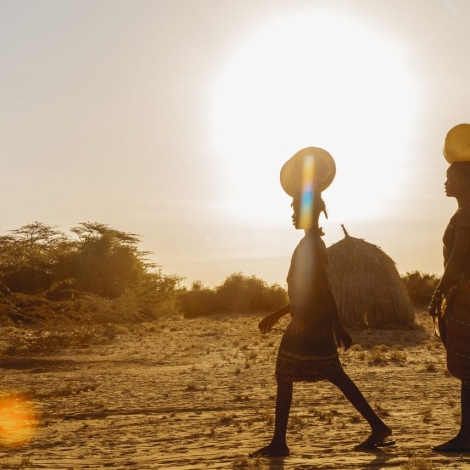
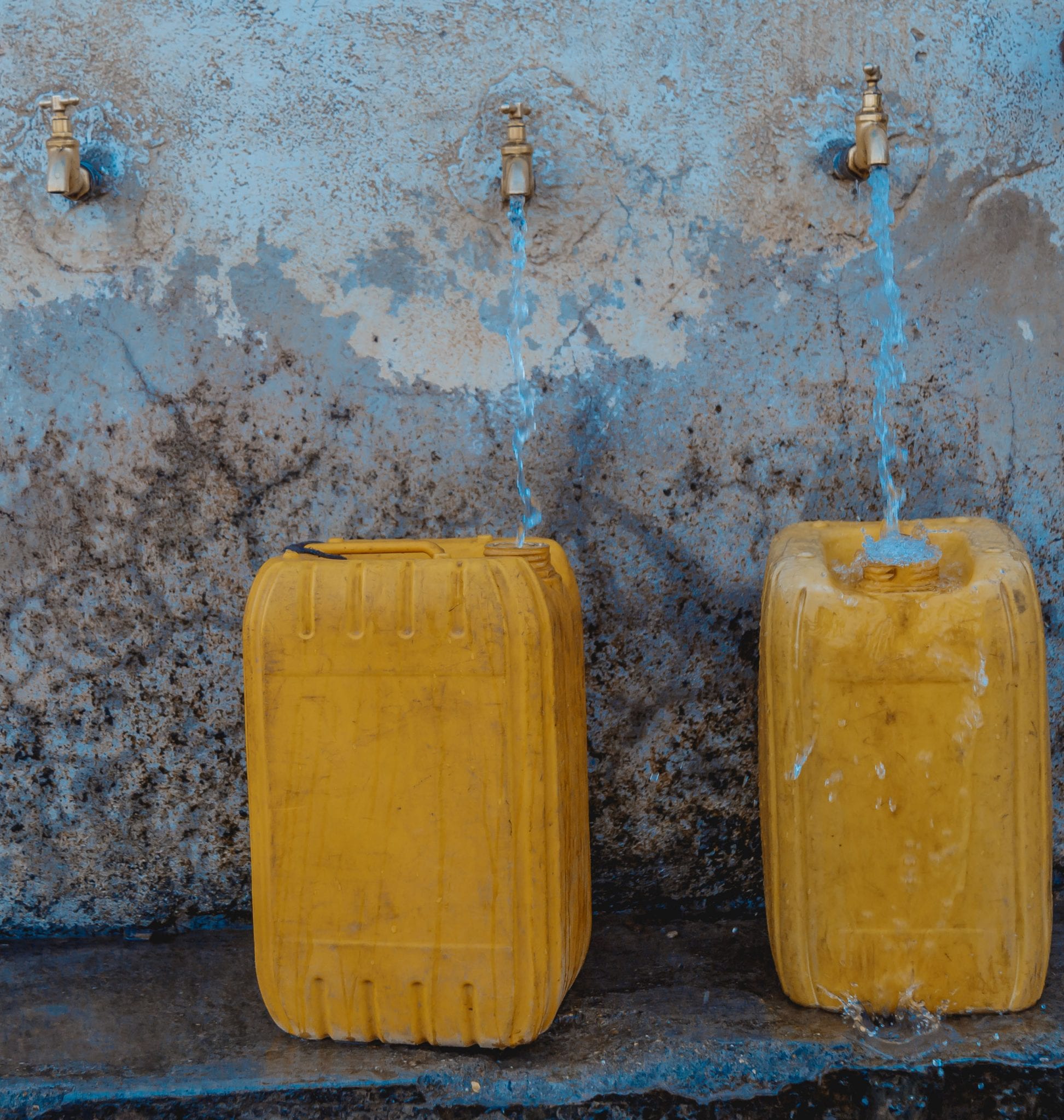
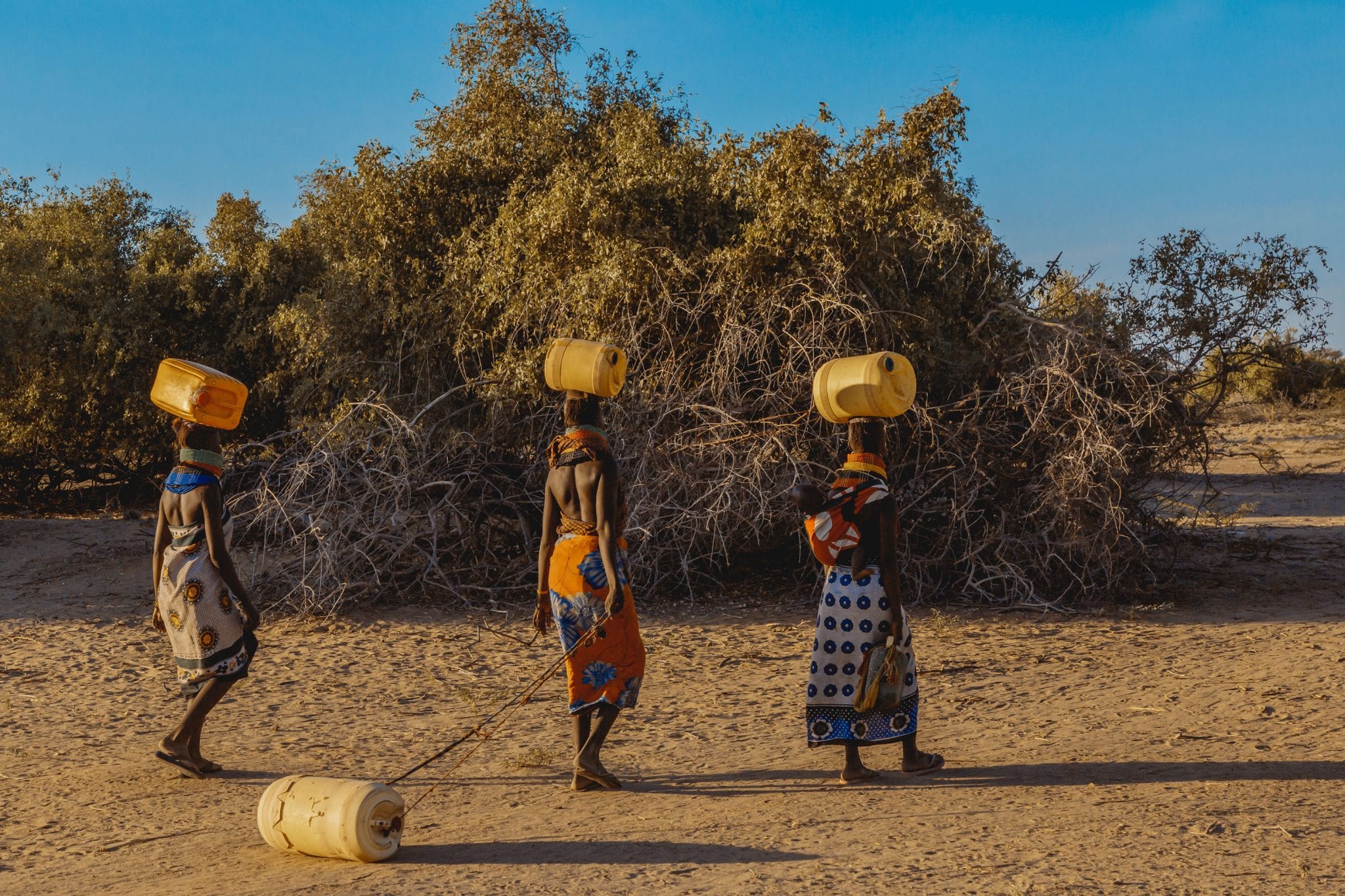
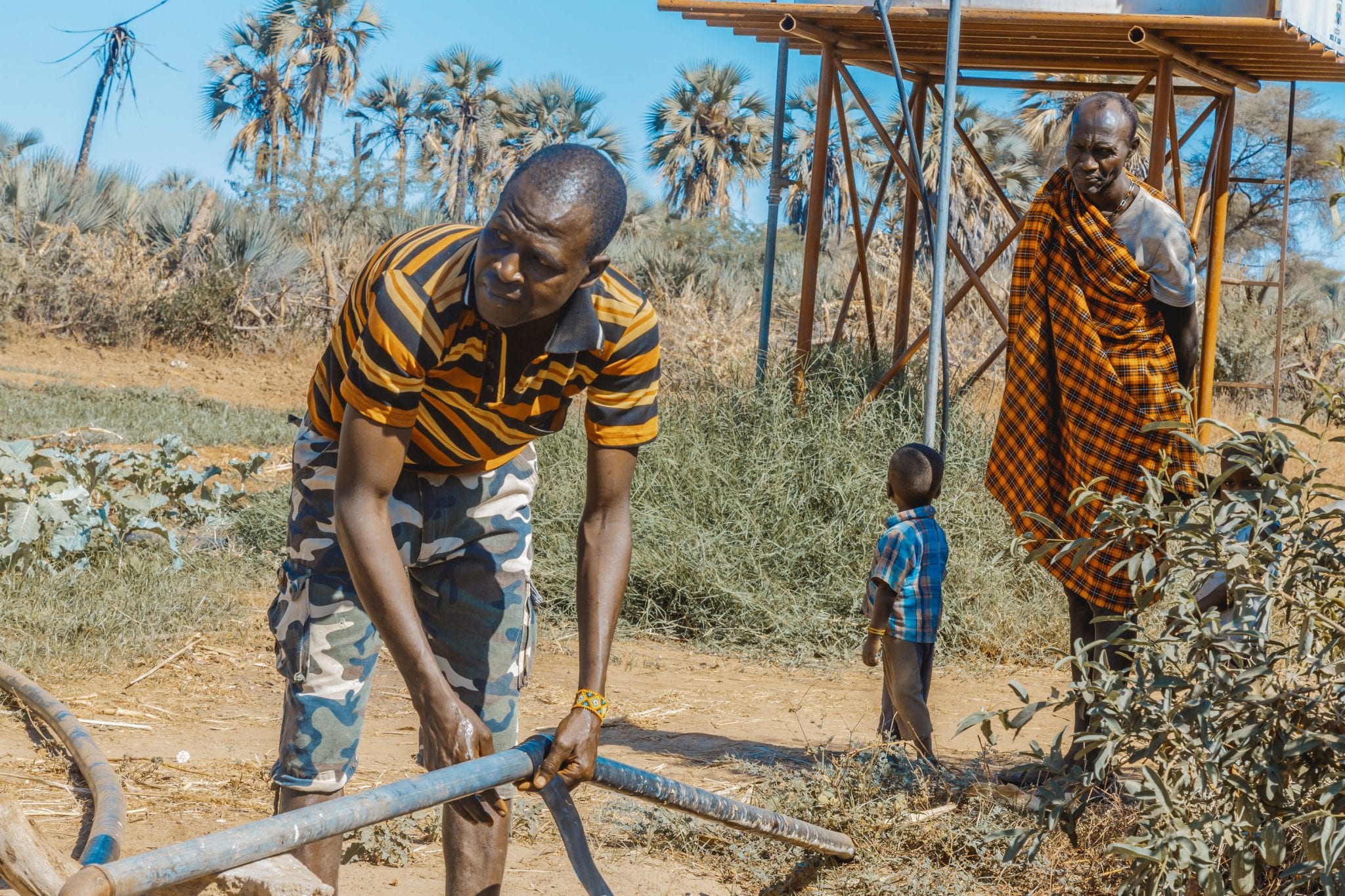
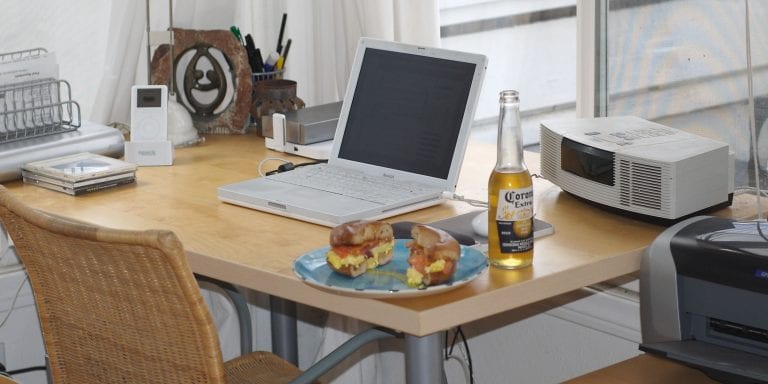
I could not help commenting on this as a Kenyan citizen involved in modeling social economic potentials for empowering a marginalized community in Ganze sub county, Kilifi county along Kenyan coast. The model involves assisting individual house holds to have a roof commensurate with rain water harvesting, storage & coaching the recipient how to prudently utilize that water for domestic use (WASH) & small kitchen garden. To incentivise the venture, place a mortgage (on the beneficiary) for cost of the
infrastructure payable not by cash but by the organic produce the household has as surplus after feeding itself. This will trigger post harvest losses counter measures, skill transfer, produce transport efficiency. Briefly see tools to use towards this endeavor.
https://drive.google.com/drive/folders/1qtI-ZlK-_C9ji4a9lIbatVLV5Z2SO6jh?usp=sharing . Once food security is achieved, exposure to easily adaptable skills, a consistent & dependable income, human industry & entrepreneurship will get a life of it’s own & all other development yard sticks we yearn for will gradually follow.